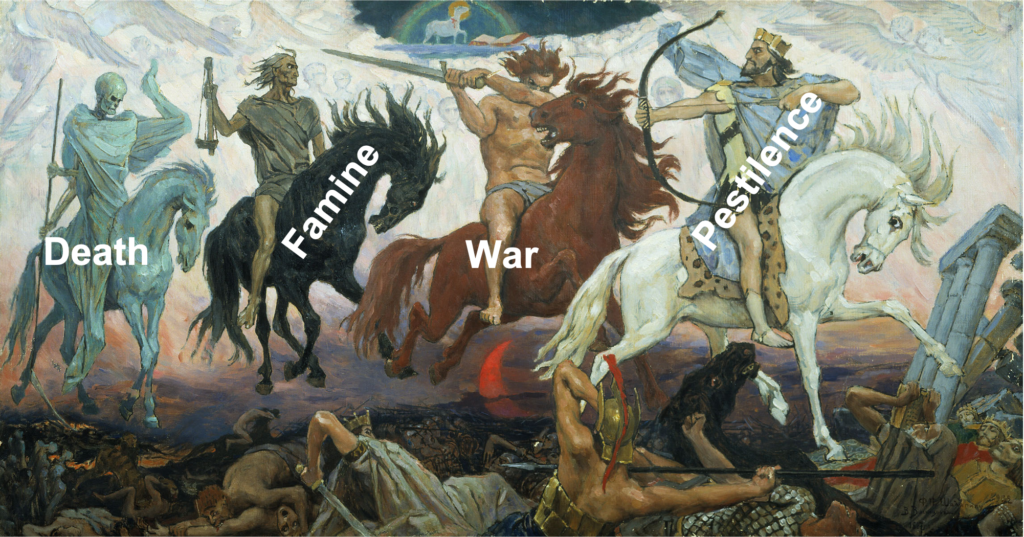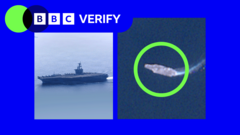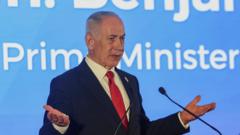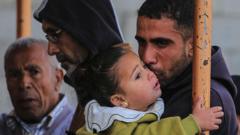Having unlocked this Vitrine Theme , here is the deal:
Blended Finance Refugee Fund – Hybrid Investment Model to Enable Refugees in Jordan
Impact Business Case
IDENTITY CARD
Blended Finance Refugee Fund
- The world is undergoing one of the worst refugee crisis since World War II, and Jordan is one of the most affected countries both in absolute and relative terms
- While many humanitarian relief & infrastructure investment efforts exist, the funding ecosystem underserves SMEs & entrepreneurs which cater to refugee needs
- The social impact investment component with a triple bottom-line impact is more than attainable in the refugee context, but until now little has been done outside the pure aid sphere
- Vehicle to fill the void by institutionalising venture / SME investment & nurture entrepreneurship for one of the most vulnerable demographic segments
- Given the specifics of refugee finance, in particular if in a hybrid commercial effort, we are looking for interested parties to become cooperating partners in developing this initiative further…

Photo:M.Umarova
Terms
 Project
Project
The Blended Finance Refugee Fund will cater to both start-up & existing business models that enable Syrian refugees and to contribute to their economic empowerment
- The structure will be hybrid, with blended finance channelled through a social impact fund to entrepreneurs or existing SME businesses, led by Syrian entrepreneurs or those companies specifically catering to refugee needs
- Accelerator: located in Amman? (Impact MENA-led) will have two different tracks: a new business creation track and an existing business growth track, to prepare & empower the entrepreneurs for venture funding
- Blended Finance Refugee Fund: located in Amman will finance the most commercially sound graduate entrepreneurs or existing businesses, and support them until exit in a VC sense
Investment strategy
The principal investment objective of the fund manager will be to achieve above-average returns in terms of triple bottom-line impact for all the stakeholders of the Blended Finance Refugee Fund

Investment structure
It is the intention, if at all sustainable, to attempt the whole structure to be onshore based, whereby the Blended Finance Refugee Fund will be enabling additional impact through strengthening the local risk investment ecosystem


Investment roles
The proposed hybrid investment model to help enable Syrian refugees in Jordan, with a wide participation for cooperating partners across the ecosystem

Entrepreneurial development
Using the Kauffman FastTrac entrepreneurship development program and developing a number of proprietary tracks to be used in the acceleration process but also in further corporate development stages of selected businesses
- Acceleration component of the Blended Finance Refugee Fund
- Pipeline development process
- SME creation track
- SME growth track
- Capacity building & support tools
- Business plan development tool
- FastTrac NewVenture
- FastTrac GrowthVenture

The processes
A stacked process that would blend the elements of business acceleration & entrepreneurial development with venture investment & development, while complying to the internationally recognised social impact investment guidelines

Impact method
An impact measurement framework, tailored to the context of refugees that will be built into the investment process and will measure its non-financial impact contribution
- The framework takes as it starting point the SDGs and uses its targets & indicators combined with other indicators
- The framework is built on the basis of highly recognised concepts
- The framework measures the impact at two different levels, at the venture levels and at the Blended Finance Refugee Fund level

Impact measurement
Impact measurement is an integrated part of the strategy built into the investment process
- A measurement framework tailored to the unique context of refugee entrepreneurs, as well as refugees affected by the project
- The framework takes as it starting point the SDGs, and uses its targets & indicators combined with other indicators
- The framework built on the basis of internationally recognised concepts (EVPA and Kellogg Logic Framework)
- The impact framework measures the non-financial impact & helps to understand impact on society & environment, and its contribution to sustainable development

Impact value chain
The objective of Impact measurement is to manage and optimising the process of creating social impact by transforming objectives into measurable results through an Impact Value Chain using a combination of indicators

EXPLORATORY PIPELINE
For the purposes of assessing the market, we have done certain extrapolations based on the surveys conducted
Beneficiary businesses / start-ups:
- Businesses owned by Syrians

- Businesses employing Syrians
- Businesses catering to Syrians
- Businesses in effected refugee areas
Business examples addressing SDGs 1, 2, 3, 6, 8 and 10:
Industry & Agriculture
- Natural organic soap factory
- Decorative & precious stones
- Waste recycling plant
- Agribusiness marketing
- Olive peat factory
- Organic chicken breeding
- Cattle & sheep farm
- Organic fertiliser factory
- Poultry & cattle feed factory
- Tomato processing factory
- Aquaponics & fish farm
- Dried & frozen fruits factory
- Medical herbs factory
- Strawberry farm & factory
- Flavoured yogurt factory
- Healthy soups factory
- Bee Hives Factory
- Flour-based baked goods
- Thyme factory
- Chicken parts factory
Services & Tourism
- Specialty restaurants
- Organic goods retail
- Building restoration
- Construction services
- Mobile food trucks
- Medical resort
- Camping centre
- Mobile & hybrid auto repair
- Integrated petrol stations
- Transport services
- Repair services
- IT services
Deal sourcing
Blended Finance Refugee Fund with an active & collaborative approach
Various offline/online marketing channels & outreach partners will be utilised in both start-up & growth tracks
Marketing channels:
- Workshops & seminars: in collaboration with outreach partners
- Business plan competitions
- Digital: social media, dedicated website, SMS, eShots
- Printed material: leaflets, posters, billboards
- Other: radio ads & other visibility activities
Outreach Partners:
- Local NGOs: charities, clubs, commerce & industry chambers, professional networks, industry associations
- Government: related ministries & agencies, universities, research institutions
- Private sector: large local corporations, multinationals, Incubators, VCs,
- Multilateral agencies & donors
Cooperating partners
Key to this theme is in seeking cooperating partners, those coming onboard with this initiative, through available research, legal advisory & other in-kind participations and/or grants.
Log of approached entities at various stages of the project development:
NGOs
- King Abdullah II Fund for Development
- Crown Prince Foundation
- Shoman Foundation
- Nuqul Foundation
- Beyond Capital
- International Youth
- Foundation
- Mercy Corps
- Middle East Investment
- Initiative
- int@j
- SPARK
- Jordan River Foundation
- Injaz
- King Hussain Foundation
- Business and Professional
- Women-Amman (BPWA)
- Forum for Business and
- Professional Women (JFBPW)
- Women Access to Entrepreneurship Development and Training Society (WAEDAT)
- Sisterhood is Global Institute
- ReBootKamp (RBK)
- Center for International
- Private Enterprise
- Mowgli Mentoring
- AlFayha Charity
- Al Gharraa Charity Organisation
Multilateral Organisations & Donors
- UNWomen
- UNDP
- UNHCR
- ILO
- JADE
- EBRD
- EU
- EU country embassies
GOs
- Ministry of Planning
- Ministry of Industry & Trade
- Ministry of Labour
- Ministry of Interior
Further investigation requirement
Potential cooperating partners are invited to express interests and/or ability to help us on the following items:
- Market survey of the existing businesses by refugees & any registered interests with agencies, labor agencies & other
- Market survey of the unregistered refugees
- Interview government agencies for clarity on job restrictions
- Interview government agencies & study laws for clarity on differences and/or restrictions for business setup by Syrians
- Joint approach to the relevant Jordanian government bodies with the cooperating partners in order to get to certain comfort levels for potential Blended Finance Refugee Fund investors…
Proposed budget
Cooperating partners are invited to see if any grant or in-kind participation is in their domain to help develop the project further

Value added
The team has extensive regional as well as global expertise
It provides blended industry know-how with a complementary skill-set well suited to the project: entrepreneurship development, social impact management, SMEs investment & venture capital expertise
- Participated in a dozen social impact projects & as many transition impact investments
- Developed 22 national programs & 11 entrepreneurship development programs
- Closed 100 advisory & principal transactions worth $¾bil primarily with SMEs
- Executed over 30 principal investment exits with many more liquidity events
- Managed 4 funds and designed double that including a PPP fund
- International perspective from 2-dozen countries, yet a very regional focus

Theme Contribution
 An independent advisory firm based out of Amman, primarily focused on the Middle East and North Africa (MENA) region
An independent advisory firm based out of Amman, primarily focused on the Middle East and North Africa (MENA) region
- Impact MENA provides services to governments, non-profit organizations, universities, investors & other stakeholders in the entrepreneurship & innovation ecosystems
- The firm builds on the track record of its founders & team over the last 15 years designing & implementing economic development programs on the national & regional levels; in addition to engagements where the founders & team had acted as advisors to more than 50 leading organizations in 10 countries in the region
- Over the last 5 years, Impact MENA developed its own venture creation & acceleration model in which clients are engaged in well-designed awareness, training, mentoring & support activities to help them move from ideation to implementation in up to 3 months, in addition to an enterprise growth program for existing businesses
 An independent advisory firm, primarily focused on social investment & corporate social responsibility
An independent advisory firm, primarily focused on social investment & corporate social responsibility
- 360°Impact creates bridges between social ventures, social investors & corporates by mapping out frameworks for societal & business value creation
- The advisory firm which is part of IPA (Impact Partnership Advisory Pty Ltd) identifies, nurtures & cultivates a pipeline of early stage social entrepreneurs, with which corporates engage operationally on social ventures which receive strategic support & access to market and financing from social investors
- Another part of 360°Impact’s job involves advising corporates on the alignment of social & economic goals by integrating economic, social & environmental objectives
- The advisory firm has also developed a market watch intelligence on subjects such as sustainability and innovation, SDGs, social entrepreneurship, strategic CSR & inclusive development
Theme Related Tracker
- The False Choice in African Energy Access: Why the Sector Must Balance the Needs of Households and Businesses — And How it Can Electrify Bothon February 18, 2026
Energy access is essential to Africa’s development. But as Alba Topulli at CLASP and Todd Moss at the Energy for Growth Hub argue, progress has stalled over a false choice: Should the continent prioritize solar home systems that bring basic access to households — or should it invest in making electricity cheaper and more reliable for businesses, to power job creation and economic growth? They explain why the energy access sector must resist this perceived trade-off, and propose four key principles that can allow Africa to accomplish both of these goals.
- Leveraging the Currency of Trust: How Social Commerce Data Can Inform Risk Management and Bring Formal Finance to Women-Led MSMEson February 12, 2026
Across emerging markets, millions of women entrepreneurs operate in trust-based economies invisible to formal credit systems. As Nabilla Prita Fiandini and Monica Christy at MicroSave Consulting (MSC) explain, these businesses rely on their social reputations and customer relationships to survive, and often use platforms like Facebook and WhatsApp to market their products. They share insights from a recent MSC report based on surveys and interviews with hundreds of social sellers across Indonesia, exploring how data from these entrepreneurs' social commerce activity can be used to boost their access to formal finance.
- Storytelling for Velocity, Not Visibility: Why African Development Organizations Need a New Communications Playbookon February 5, 2026
Something subtle yet profound is changing in how global development organizations in Africa communicate about their work and impact. According to Chrisphine Omondi, a communications specialist with experience across the continent, these organizations have often relied on external communications consultants who produce reports, recommendations and strategies, then exit before those plans are fully implemented. He argues that this model no longer fits the pace and complexity of Africa’s evolving development ecosystem, and explores how African organizations can create a more holistic, systems-based communications model that aligns with the broader changes that are reshaping global development.
- Productive Use Has Challenges: What’s Holding the Sector Back — And How Companies and Investors Should Respondon January 29, 2026
Productive use of renewable energy (PURE) technologies such as solar irrigation, cold storage and agro-processing can have a transformative impact in Africa and other emerging markets. But though the potential of these technologies is undeniable, the scale isn’t. As Daniel Waldron, Chris Emmott and Kristi Chon at Acumen, and Duda Slawek at Open Capital explain, few agricultural companies are delivering PURE solutions, and fewer still are growing fast enough to meet the scope of the problems they are trying to solve. They share new research and analysis that illuminate the challenges that are holding the sector back, and propose three ways forward.
- Rethinking What it Means to Start a Business: Why Systemic Venture Building Matters for Africa’s Food Futureon January 21, 2026
Africa’s entrepreneurs are often seen as risky investments not due to any limitations of their own businesses, but because of the risks in the systems around them. As a result, as Dieuwertje Nelissen, Eveline Jansen and Rachael Kirui at Enviu argue, it's important for development stakeholders to move beyond de-risking individual businesses and to put greater effort into strengthening and de-risking the systems that support them. They explore this systemic approach in the context of African agriculture, sharing a venture-building model that can help entrepreneurs reduce early-stage risk and scale sustainable impact.
- Interoperability is the Answer to Scaling Up E-mobility in Africa: What the Continent Can Learn from the EU and India’s Divergent Approacheson January 13, 2026
Electric mobility in Africa is an emerging but highly fragmented market, defined by uneven policies, diverse vehicle types and limited scale. As a result, according to Ashay Abbhi at Intellecap and Nyaga Kebuchi at Sustainable Transport Africa, interoperability has become a critical enabler for the sector. They explore how interoperability — the ability of battery or charging systems to work seamlessly with multiple fleets of vehicles — can turn distributed hardware systems into a usable network, and discuss how the EU and India’s different routes toward interoperability can inform Africa's e-mobility transition.
- Scaling Through Consortiums: Five Lessons We’ve Learned About Growing Impact Collectivelyon January 7, 2026
For impact-focused organizations, consortiums are rarely the easy path to scale. They tend to be slower, more complex and harder to manage than working with a single partner. But according to Emma Colenbrander at Spring Impact, consortiums can also produce solutions that are broader in perspective, stronger in legitimacy and more resilient in practice. She explores these benefits and shares five lessons for maximizing the impact of this sort of collaborative effort.
- NextBillion’s Most Influential Articles of 2025: Announcing the Winners of Our Annual Conteston January 5, 2026
We've counted the votes in NextBillion’s “Most Influential Articles of the Year” contest, an annual tradition since 2012. The three winners are listed in this article. Congratulations to these guest writers, and to the other contestants in the contest, whose insights have clearly resonated with our readers this past year. And thank you to everyone who voted — and everyone who read and wrote for NextBillion in 2025. Best wishes for the new year!


































